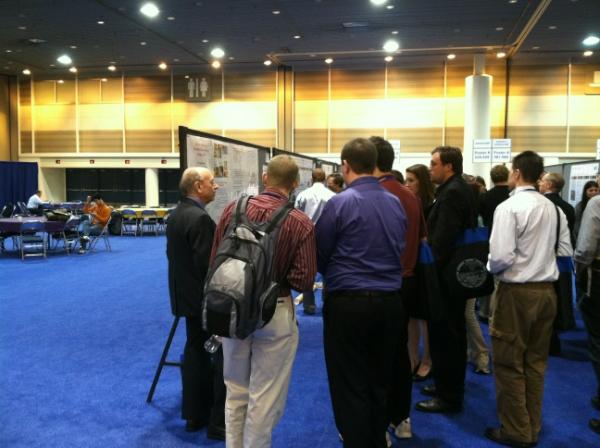
Q&A: Weather Channel's Greg Forbes Talks Tornadoes

NEW ORLEANS — When severe weather strikes, the Weather Channel calls on their tornado expert, Dr. Greg Forbes.
During the 2011 tornado season and beyond, Weather Channel viewers saw a little too much of Forbes on TV. According to the nation's Storm Prediction Center in Norman, Okla., 1,700 tornados hit across 48 states, the second-highest total in recorded history. Tornadoes killed 551 people, the third-highest death toll on record.
To make sure the nation doesn't suffer through another year like 2011, Forbes this week joined weather experts from around the world here for the annual American Meteorological Society conference, where OurAmazingPlanet caught up with him.
Forbes chatted about what it will mean to have the nation truly ready for whatever weather Mother Nature brings, which is a theme of this year's conference.
OurAmazingPlanet: In your opinion, Dr. Forbes, what does the United States need to do to become truly weather ready?
Greg Forbes: As we've heard here in these talks, there's a lot that goes on or doesn't go on between us just putting out forecasts and whether or not the public responds to that — and then there's a lot more than just the public. There's all sorts of other kinds of users, from roofers that are wanting to know where the hail storms are going to be, to airlines, to roads, to you name it. Everybody has some weather interests that could affect their profitability and their daily lives. [Tornado Myths Prove Tough to Bust]
So I think one of the keys to a weather-ready nation is to just try to evolve towardnotjust putting out that the high is going to be 48 and the low is going to be 24 … to more and more user-specific kind of information that, from a severe weather standpoint, tries to get at more and more ways to cut down the false alarms to focus on where the threats are.
Sign up for the Live Science daily newsletter now
Get the world’s most fascinating discoveries delivered straight to your inbox.
[We need] a whole variety of delivery mechanisms so that as many people as possible will be able to get the messages and be encouraged to take action.
OAP: Ensuring that people understand and react to the weather warnings has been a focus of several talks at this year's conference. Are you going to try anything new during your forecasts for the 2012 tornado season?
GF: It's tough from a national channel, but I think as much as we can, we'll be as geographically specific as we can. The Weather Channel is a multiplatform thing. It's not just video. We have radio, we have Internet, we have all sorts of ways to deliver to basically any kind of mobile platform you have, and we are heavily into Twitter. So, using all of the above to try to get the message out through as many platforms as we can is what we're doing and what we'll continue to do.
OAP: You developed a tornado-warning index, called TOR-CON. How does that help people respond to warnings during severe weather?
GF: We came up with TOR-CON to try to get people's attention ahead of time so they'll be listening on the days when they need to be. In terms of trying to get them to respond better, we just try to be as geographically specific as we can.
OAP: 2011 was such a devastating year for severe weather. Did you see any bright spots amid the destruction?
GF: Some people thought that [the death toll] could have been a lot worse. So I've heard people from Tuscaloosa, people from Joplin, that have said that they would have thought it should have a lot worse fatalities. So I guess if anything that was the bright spot, that it wasn't worse.
OAP: We've heard a lot this week about warnings that didn't work. Where did they work?
GF: There were some instances where an EF-4 tornado went through a lot of houses, and like the St. Louis airport on April 22, there was not one fatality. So while we had several huge, deadly tornadoes, there were some tornadoes that were pretty strong but the death toll was either none or very low. So clearly the warnings and responses in some cases have been excellent and lives were saved.
You can follow OurAmazingPlanet staff writer Brett Israel on Twitter: @btisrael. Follow OurAmazingPlanet for the latest in Earth science and exploration news on Twitter @OAPlanet and on Facebook.










